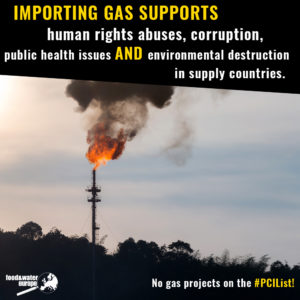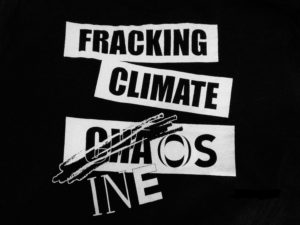Parliament Committee Will Address a Petition Submitted by Food & Water Europe Demanding Accountability for Decades-Long Climate Change Cover-Up
May 15, 2018 – The Petitions Committee of the European Parliament announced that it will consider tomorrow a petition calling on the Parliament to take action to hold ExxonMobil accountable for its decades-long cover-up of internal documents tying its fossil fuel production to globe-threatening climate change. The scandal, known colloquially as #ExxonKnew, arose in 2015 when evidence came to light showing that Exxon scientists confirmed at least as early as 1981 that fossil fuel extraction and burning contributed significantly to dangerous climate change, but hid those conclusions and funded massive efforts to publicly challenge its own internal science.
Parliament’s interest in challenging Exxon comes in stark contrast to the Trump administration’s egregious climate denial and aggressive promotion of the fossil fuel industry. President Trump appointed Rex Tillerson, the CEO of ExxonMobil during much of their science cover-up period, as his first secretary of state. The European Union, signatory of the Paris Climate Agreement and aiming at becoming global leader in renewable energy should take its responsibility to draw boundaries to fossil fuel multinationals like Exxon. With ExxonMobil’s misleading campaign on the European Parliament’s agenda, parliamentarians have now the chance to help protect EU citizens from the corporation’s risky business and to walk the talk of preserving EU climate and energy targets.
“ExxonMobil has misled the public debate on climate change for over 40 years but due to close ties between ExxonMobil and the Trump administration, an initial push to hold the corporation accountable is stalled,” said Member of European Parliament Marina Albiol Guzman, a member of the Petitions Committee. “Tackling ExxonMobil’s climate cover up now in the European Parliament could be an opportunity for parliamentarians to walk the talk and prove their willingness to tackle climate change and honor the Paris Agreement.”
“European Parliament’s interest in holding ExxonMobil accountable for its decades of lies and cover-ups is certainly encouraging,” said Wenonah Hauter, executive director of Food & Water Watch and Food & Water Europe. “The ball is now rolling on a process that may finally force Exxon to reckon with its toxic, deceitful past and answer for its assault on our planet. We urge Parliament to act swiftly and aggressively in this critical matter, and take powerful action against Exxon.”
Contact: Frida Kieninger – Tel: +32 (0) 2893 1045, Mobile: +32 (0) 487 24 99 05




 Brussels and Washington, D.C.
Brussels and Washington, D.C.